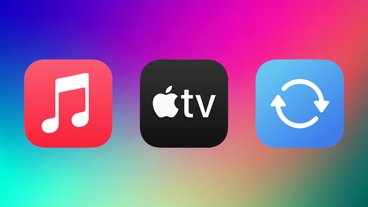Native MySpace iPhone app; iTunes royalties; FNAC chases iPhone
MySpace is rumored to be among the first developing third-party native iPhone software. Meanwhile, musicians listed on European iTunes stores typically earn more than their US counterparts, a major French retailer demands iPhone sales rights, and Kaspersky has built prototype Mac antivirus software.
One of the first native applications for Apple's touchscreen devices could be a front end for MySpace, says a rumor at Electronista.
The software is reportedly built using a pre-release version of Apple's development kit for the iPhone and iPod touch and has largely been considered a secondary priority at the company, which has only devoted a handful of staff to the project on a casual basis.
Even so, the current results are purportedly "impressive," if unfinished: the project isn't believed to be ready for Apple's Software Roadmap event on Thursday and isn't likely to be a full-fledged replacement for the website, which streams music and video through a Flash interface unavailable on the Apple devices.
The same website first alluded to high-profile developers receiving SDK kits last fall, several months ahead of the public unveiling.
iTunes royalties higher in Europe
If a musician or band wants to reap the rewards from music sales through iTunes, their best bet is to offer their titles through the European stores, performer Leon Rousseau has revealed.
In one of the few instances where artists have discussed the hard math of iTunes' royalty system, Rousseau notes that a song costing 99 Euro cents in France's iTunes Store nets brings back almost 95 US cents to the label, while the same track purchased from the American store offers just 64 US cents in compensation.
The rocker can't provide the same figures for whole albums, however: while he knows that a €9.99 title will pull $8.94, no one on the US store has yet to buy the whole track.
Nonetheless, the income from either country is strong enough to make it a viable (if not ideal) venue to sell music, Rousseau claims. As traditional CDs are often sold at a higher price to distributors who themselves take a cut, the old format is often more expensive and less profitable at the same time.
"It's frankly not that bad for a support mechanism that doesn't generate manufacturing costs," the musician says.
Most other iTunes stores based in countries that depend on the Euro charge similar rates.
French chain demands rights to sell iPhone
France's primary electronics retailer, FNAC, may resort to legal measures to gain sales rights for the iPhone, according to a report by national newspaper Le Figaro on Tuesday.
The store chain's chief executive, Denis Olivennes, told the publication that FNAC was holding talks to become a new official source for the iPhone, but that it would not accept an unsuccessful attempt. If necessary, the company will take steps to force the issue — though the retail head did not say what routes might be possible.
Orange's exclusive lock on selling the iPhone in its own stores is "inadmissable," Olivennes says. At present, the UK is the only country in which Apple allows the iPhone to be sold through an outlet besides its own stores or those of the exclusive carrier. British customers can buy the device through Carphone Warehouse in addition to Apple and O2 stores.
Kaspersky mulls Mac OS X security suite
Moscow's well-known antivirus developer Kaspersky could have a Mac port of its software released "in just days" if necessary, company representative Timur Tsoriev told the press at the CeBIT show in Germany.
The company is now known to be holding a rough copy of the software in reserve should the Mac become a genuine target for malicious software. Apple's continued marketshare increases prompted the move, according to the company's founder, Eugene Kaspersky.
This feat is possible due to the engine underneath the current software. Where some security programs often require major conversion efforts to work on the Mac, Kaspersky's software is independent enough to run on multiple operating systems. The software team can therefore ready a Mac version without committing to a full release.
Other companies such as AVG developer Grisoft and F-Secure are also pondering Mac development, though both suggest that a release would depend heavily on demand.
 Katie Marsal
Katie Marsal










 Andrew Orr
Andrew Orr
 Wesley Hilliard
Wesley Hilliard


 Amber Neely
Amber Neely

 William Gallagher
William Gallagher








